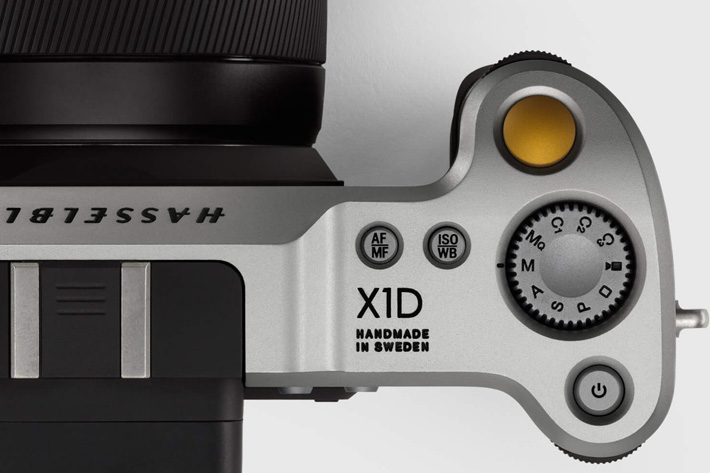
The promised “game changer” from Hasselblad may not be the camera most of us will buy, but it surely is an object of desire after the Stellar, Lunar and Lusso, considered “worst camera of the year” three years in a row. Now the Swedish camera company seems back on track to deliver real cameras for photographers. The X1D is, when it comes to video, a Full HD machine, which is probably enough for its market.
Weighing less than half that of a conventional digital medium format camera, at just 725g, the Hasselblad X1D gets inspiration from the brand’s design heritage, revealing it in a mirrorless camera, the first in medium format, which is both ergonomic and compact, offering a handling experience unlike any other… and that I would like very much to put to test, so as to compare it with my old Fujifilm 645.
Commenting on the announcement Perry Oosting, Hasselblad CEO, noted: “The X1D marks a pivotal point in Hasselblad’s rich 75-year history. This camera makes medium format photography available to a new generation of Hasselblad users, while pushing the existing limits of photography to new heights.”
One has to agree with Oosting’s comments. Hasselblad has ingeniously introduced mirrorless technology to digital medium format for the first time ever, creating a precision performance camera that can rest in the palm of your hand. The 50MP CMOS sensor delivering up to 14 stops of dynamic range captures the finest details with true natural colours.
This CMOS sensor, which offers 8272 × 6200 pixels, will probably be used for some unique time-lapse sequences that will explore both the camera’s ability to expose from 60 minutes to 1/2000th sec. with full flash synchronisation throughout the range, and the completely new family of dedicated autofocus lenses, XCD, which has been developed to support optical quality and portability. At launch two lenses with integral central shutter are available: 45mm and 90mm. The camera is also compatible with all 12 lenses and lens accessories from the Hasselblad professional H System, through an adapter.
The X1D’s high-resolution rear LCD offers touch control for all aspects of the camera’s features. The icon-based user interface speeds access to customisation options along with intuitive playback functions such as swipe and pinch to zoom, but the camera also boasts an XGA electronic viewfinder for bright, crisp viewing even under difficult lighting conditions.
With Wi-Fi, built-in GPS, a flash hot-shoe for Nikon flashes, ISO range from 100 to 25,600, Dual SD card slots, USB 3.0 Type-C connector, Mini HDMI, Audio In/Out, the Hasselblad XD1 seems ready to be a trusted partner and ideal travel companion for passionate photographers who also want to be able to explore moving images. There are limitations when it comes to video, as there is only 1920×1080 available – H.264 Compressed (25 fps) – but imagine the results achievable with a portable system offering the narrow depth-of-field associated with medium format cameras: an unrivaled look and bokeh in your footage. And the X1D has connectors for microphone and headphones!
All this fits in the palm of your hand, if you’ve the 7,900 EUR / 8,995 USD / 5,990 GBP asked, all prices stated exclusive of VAT. It does not matter if you’ve the money for it or not, the Hasselblad X1D is, probably, one of the best moves from Hasselblad in a long time, and a bold way to celebrate Hasselblad’s return to its senses.
